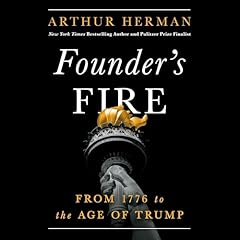
The Cave and the Light
Plato Versus Aristotle, and the Struggle for the Soul of Western Civilization
No se pudo agregar al carrito
Solo puedes tener X títulos en el carrito para realizar el pago.
Add to Cart failed.
Por favor prueba de nuevo más tarde
Error al Agregar a Lista de Deseos.
Por favor prueba de nuevo más tarde
Error al eliminar de la lista de deseos.
Por favor prueba de nuevo más tarde
Error al añadir a tu biblioteca
Por favor intenta de nuevo
Error al seguir el podcast
Intenta nuevamente
Error al dejar de seguir el podcast
Intenta nuevamente
 Exclusivo para miembros Prime: ¿Nuevo en Audible? Obtén 2 audiolibros gratis con tu prueba.
Exclusivo para miembros Prime: ¿Nuevo en Audible? Obtén 2 audiolibros gratis con tu prueba.
Elige 1 audiolibro al mes de nuestra inigualable colección.
Acceso ilimitado a nuestro catálogo de más de 150,000 audiolibros y podcasts.
Accede a ofertas y descuentos exclusivos.
Premium Plus se renueva automáticamente por $14.95 al mes después de 30 días. Cancela en cualquier momento.
Compra ahora por $30.76
-
Narrado por:
-
Paul Hecht
-
De:
-
Arthur Herman
The Cave and the Light reveals how two Greek philosophers became the twin fountainheads of Western culture, and how their rivalry gave Western civilization its unique dynamism down to the present.
©2013 Arthur Herman (P)2013 Recorded BooksLos oyentes también disfrutaron:




















Las personas que vieron esto también vieron:


















Great Breath and Depth
Se ha producido un error. Vuelve a intentarlo dentro de unos minutos.
The beginnings of the history told in this book are the most potent and based. The author takes care to humanize Socrates and Plato without making light of their significance.
As the book progresses though it is clear to me that the author cares more for politics (modern and historical) than the philosophy that the people in this book hold. The book turned out to be more about how the philosophers of western history were seen and influenced politics than the meat of their philosophy. If that’s the sort of book you are into then this is up your alley but I often saw this as a detour into the author’s own political biases than something worth considering.
The inclusion of Ayn Rand was wild and really took me by surprise since she feels like a punchline nowadays in comparison to Kant or Aristotle which were also featured in this book. Ayn Rand popping up at the final chapter made this book feel like cheap capitalist propaganda.
Condensing a long wonderful history
Se ha producido un error. Vuelve a intentarlo dentro de unos minutos.
Great high-level review of the history of ideas
Se ha producido un error. Vuelve a intentarlo dentro de unos minutos.
The first 2/3rds of the book were clear-cut and easy. After the Enlightenment, the ideas become harder to trace, and more challenging to follow the quick changes between people and ideas. I think the post enlightenment section could use an entire volume to expand some of the ideas further.
The performance aspect is great. There’s enough interest in the voice to keep engaged with the material. He does make a few mistakes and mispronunciations along the way, but I’d rather have that than boring.
Great Storytelling for a Work of Philosophy
Se ha producido un error. Vuelve a intentarlo dentro de unos minutos.
as a Christian who supports capitalism I really enjoyed the last chapter where the author gives his conclusions. however I do think that people who do not share my view will enjoy the rest of the book, which is mostly objective in its explanation of major thinkers throughout history.
great overview of the history of philosophy
Se ha producido un error. Vuelve a intentarlo dentro de unos minutos.


